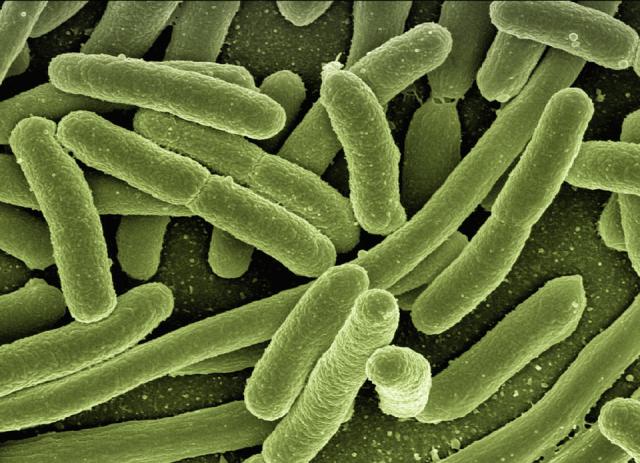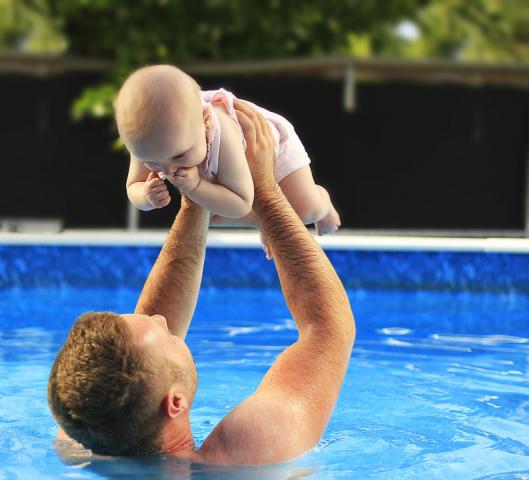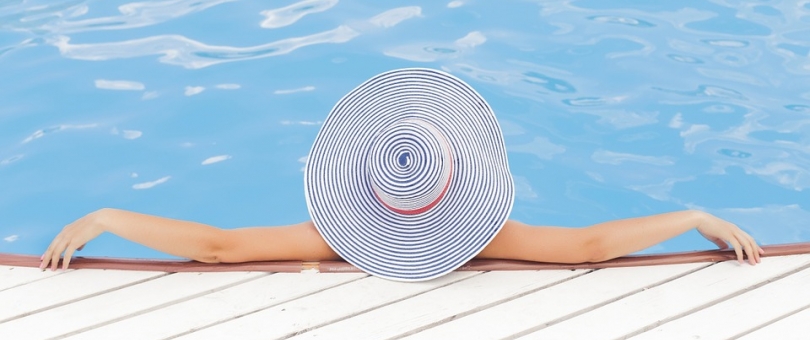Swimming pools aren’t safe. You share germs with everyone in the pool and face higher chances of catching diarrhoea, eye, ear, throat and respiratory infections.
Is Chlorine effective in killing germs?
Chlorine in the pool, which is used to kill the bacteria, depletes quickly as the number of people using the pool increase. And it isn’t very quick in action. There are some viruses which are immune to chlorine. Once such viruses enter your swimming pool, they can take days to be eliminated. On ingestion, they make you sick.
Almost all the government websites that talk about recreational water illnesses (RWI) warn the swimming pool users to be extra cautious. You need to be aware of all the diseases that can be caused and practice precautions for your safety and safety of other users of the swimming pool.
Pathogens in the swimming pool that can make you sick
Some common pathogens which are responsible for spreading diseases through swimming pools are:

- Cryptosporidium: This parasite is chlorine-resistant and can stay in swimming pools for days even after chlorination. It’s responsible for gastroenteritis outbreaks.
- E. Coli: This is a good bacteria that’s found in our intestines. But a strain of this bacteria – E.Coli O157 can cause severe intestinal infections. Infections can happen due to swimming in water contaminated with this bacterium.
- Giardia: This is a microparasite that’s passed through faeces and causes diseases like diarrhoea. Even a minuscule amount of faeces in the pool is dangerous. That’s why infants are usually restricted from entering the community pools.
- Noroviruses: These viruses commonly spread through pool water. They can cause diseases like vomiting, stomach cramps, diarrhoea and nausea.
- Pseudomonas Aeruginosa: Ever wondered what causes that painful and itchy swimmer’s ears? This germ is to be blamed for that.
How to avoid sickness because of a contaminated swimming pool?
These strains of viruses stay and wait for you to get exposed to them. If you have a pool in your house, you could be at risk because of these bacteria and viruses. Before you open up the pool for summer, go for a professional pool service. Then ensure that your pool is thoroughly cleaned on regular basis.
Here are some more things you can do to prepare your guard against the microorganisms as mentioned earlier.

- Shower (with soap) before you enter the pool.
- Don’t spit in the pool.
- Don’t pee in the pool.
- Don’t swallow pool water.
- Don’t blow your nose while it’s inside water.
- Make sure children’s diapers are secured to their place to avoid contamination of pool through faeces.
- Skip the pool if you’ve diarrhoea.
- Learn how to run pH tests to ensure that chlorine level in the pool is optimum for swimming.
- A clean pool always has clear water. That’s a sign you can use for general judgement about the cleanliness of the pool.
- Infants, pregnant woman and people with weak immune systems should consider not using the pool at all.
Don’t just keep this information to yourself. Share it with your family and with whom you share the pool. It’ll help you stay safe this summer.



